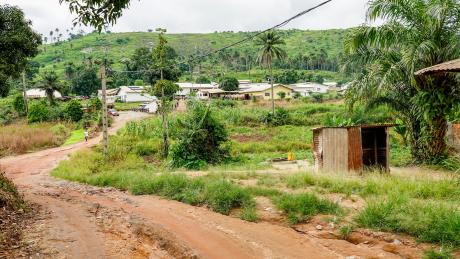
A partnership between MAF in Guinea and the Macenta Regional Specialised Hospital Centre creates new efficiencies and gives hope to the community, as well as the hospital administration.
Story by Joel Conte
“It’s one of the travel experiences I want to forget,” said Dr Daniel Galada Béavogui. “I accompanied my wife, who was almost dying, in an ambulance from N’zérékoré to Conakry.
“Every time I think about it, I have a very heavy heart.”
A father of five children, Dr Daniel is the Director General of the Regional Specialised Hospital Centre of Macenta in Guinea. A native of Macenta, he knows all too well what it means to rely on road transport.
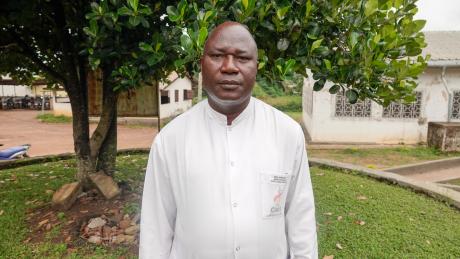
“Transporting a sick person from the forest region to Conakry is very painful,” he said. “It is as painful for us caregivers, even more so for patients. And having experienced it, it’s a great blessing to have the possibility, through MAF, to be able to help patients travel quickly and in a kind of comfort that we do not have in vehicles, to be in Conakry for better care.”
The centre where Dr Daniel serves was founded by the Mission Philafricaine in 1982 for the management of leprosy and tuberculosis. Nowadays, the team treat many other diseases including hepatitis, diabetes, and HIV.
With 65 employees, including eight doctors and several nurses, the centre serves a diverse population that comes from the sub-region of Guinea, Sierra Leone, Liberia and Côte d’Ivoire.
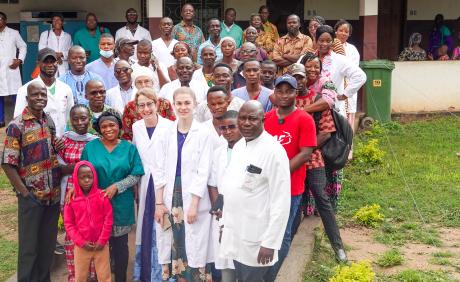
“The hospital has served as a reference centre for the treatment of leprosy and tuberculosis, and this is recognised even by the state,” said Dr Daniel. “And that’s why patients come to us even from other prefectures. It is the only centre that has the expertise in the proper management of tuberculosis, HIV and leprosy.
“We have patients who arrive very ill, who have difficulties with payment and transport. So, we thought that partnering with MAF could help staff and patients with facilitation in travel and medical transfers.”
With the centre located more than 800 kilometres from the capital city, Conakry, both patients and staff often encounter travel difficulties. Hazards include banditry and poor road conditions.
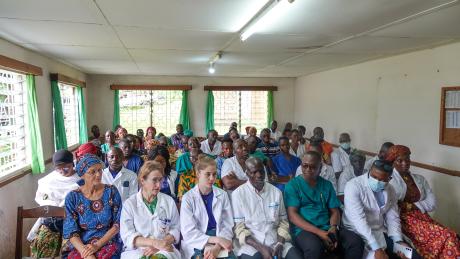
“I remember once getting wet in a taxi in the middle of a quagmire,” Dr Daniel added. “We couldn’t get out of the vehicle because of the water – because we were immersed in it, but we also didn't have good protection, so we were wet in the vehicle as if we were outside.
“In your own vehicles, you take the time to sleep along the way, just to rest – but with public transport, you have no choice, you just have to endure.”
On one road trip, Dr Daniel departed from a town outside Conakry at 6:00 am and arrived exhausted in Macenta at 1:00 am the next day.
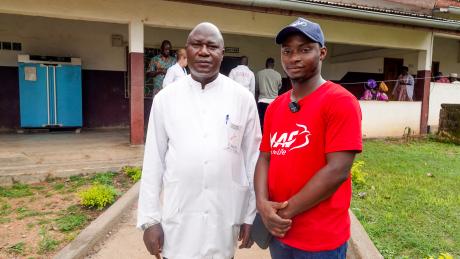
Currently, MAF flights from Conakry take only 75 minutes to land in nearby Kissidougou, 1 hour 50 minutes’ drive from Macenta.
Dr Daniel looks forward to even more direct travel in the future.
“We pray that the Macenta airstrip will be rehabilitated so that it will be easier for us to take off from here to go to Conakry or other destinations,” he said.
“When I remember the pain my wife and I had to be able to bring her to Ignace Deen Hospital, when she was on the verge of dying of tuberculosis, it was very, very, very hard for us,” Dr Daniel said.
“So, blessed be the Lord, through MAF, to be able to help all these suffering people return to Conakry or elsewhere for better care quickly and in the greatest possible travel comfort.”